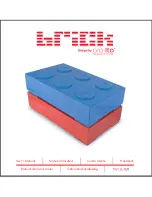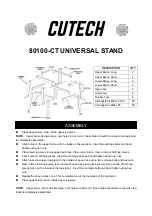
Table 2-2. Object Types and Identifiers (continued)
Object Type
Identifier
subsystem
subsystem number or user label
Note:
A user label can have the following
characters: alphanumeric characters, a hyphen, a
pound sign, and an underscore character.
disk pool
User label
Note:
A user label can have the following
characters: alphanumeric characters, a hyphen, a
pound sign, and an underscore.
A user-defined entry (such as a user label) is called a variable. In the syntax, it is shown in
italic
(such as
enclosureD
or
subsystemName
).
Statement data is in the form of:
v
Parameter=value
(such as
raidLevel=5
)
v
Parameter-name
(such as
batteryInstallDate
)
v
Operation-name
(such as
redundancyCheck
)
Script Command Synopsis
Because you can use the script commands to define and manage the different aspects of a storage
subsystem (such as host topology, disk drive configuration, controller configuration, logical drive
definitions, and subsystem definitions), the actual number of commands is extensive. The commands,
however, fall into general categories that are reused when you apply the commands to the different
aspects of a storage subsystem. The general form of the script commands and provides a definition of
each command are listed in the following table:
Table 2-3. General Form of the Script Commands
Syntax
Description
activate
object
{
statement-data
}
Sets up the environment so that an
operation can take place or performs the
operation if the environment is already
set up correctly.
autoConfigure storageSubsystem
{
statement-data
}
Automatically creates a configuration that
is based on the parameters that are
specified in the command.
check
object
{
statement-data
}
Starts an operation to report on errors in
the object, which is a synchronous
operation.
clear
object
{
statement-data
}
Discards the contents of some attribute of
an object. This operation is destructive
and cannot be reversed.
create
object
{
statement-data
}
Creates an object of the specified type.
deactivate
object
{
statement-data
}
Removes the environment for an
operation.
delete
object
Deletes a previously created object.
diagnose
object
{
statement-data
}
Runs a test and shows the results.
disable
object
{
statement-data
}
Prevents a feature from operating.
Chapter 2. About the Script Commands
2-3
Summary of Contents for System Storage DS3000
Page 599: ...Appendix A Examples of information returned by the show commands A 3...
Page 601: ...Appendix A Examples of information returned by the show commands A 5...
Page 603: ...Appendix A Examples of information returned by the show commands A 7...
Page 605: ...Appendix A Examples of information returned by the show commands A 9...
Page 607: ...Appendix A Examples of information returned by the show commands A 11...
Page 609: ...Appendix A Examples of information returned by the show commands A 13...
Page 611: ...Appendix A Examples of information returned by the show commands A 15...
Page 623: ...Appendix A Examples of information returned by the show commands A 27...
Page 625: ...Appendix A Examples of information returned by the show commands A 29...
Page 627: ...Appendix A Examples of information returned by the show commands A 31...
Page 651: ......
Page 652: ...Part Number 00W1466 Printed in USA GA32 0961 05 1P P N 00W1466...
















































